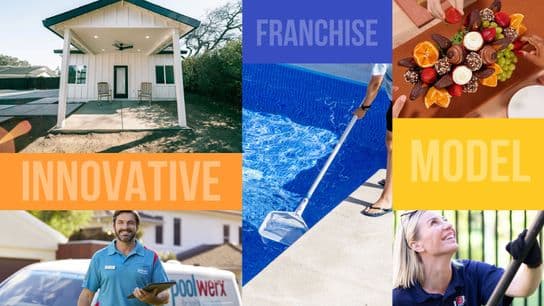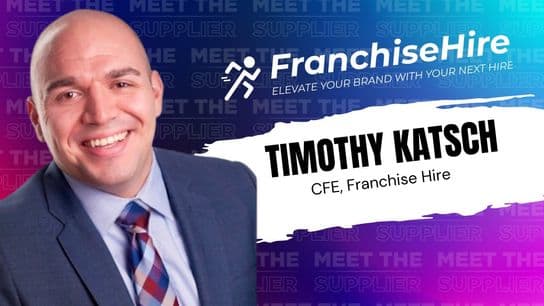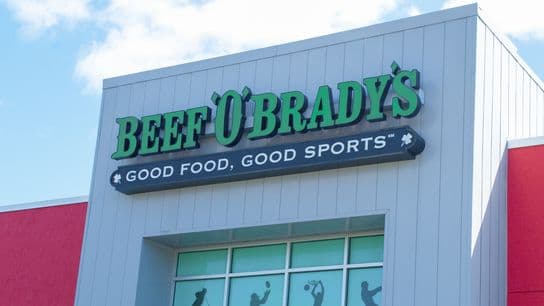10 Common Myths in Franchising
Don’t let these misconceptions deter you from following your entrepreneurial dreams
As more executives are leaving corporate America to follow their entrepreneurial dreams, franchising is also becoming a more and more popular way for first timers to test their skills and passions in the world of small business ownership. As the franchising industry continues to grow, common misconceptions about the industry are also becoming more widely accepted as facts.
With the help of Steve Beagelman, president and CEO of SMB Franchise Advisors*, and Kay Ainsley, managing director at MSA Worldwide, we got to the bottom of 10 of the most common myths in franchising, and we’re setting the record straight about them once and for all.
From the general public standpoint, there are a few common misconceptions when people might think of the word “franchise.”
1. Many people think that franchising only applies to fast food – if you ask someone what the first thing that comes to mind when they hear the word “franchise,” the most common response is something like “McDonald’s,” “Burger King,” etc. But, in reality, franchising can be applied to many different industries – even medical and dental practices.
2. A number of people don’t think of franchisees as small business people.
“I often hear friends and neighbors say, ‘this local guy just opened a local business, and we should go support him.’ Well, a franchisee is also a small business person, and we should also support them,” said Ainsley. “The franchisee has a big brand behind them, but they’re still a small business person who can fail just like everyone else if you don’t support them as a community.”
Prospective franchisees also need to be aware of common misconceptions when looking into franchising opportunities:
3. A franchisee does not own the brand. I repeat, a franchisee does not own the brand.
“A lot of franchisees think they OWN the brand in their location,” said Beagelman. “They have the right to use the brand and trademarks in the area, but they do not OWN the brand in that location.”
4. Additionally, if you’re a franchisee, the franchisor isn’t going to run the business for you – and the franchise certainly isn’t going to run itself. You have to work at it, and it’s most likely not going to be immediately successful. Yes, the franchisor is there to support you, and they’ll give you the tools to be successful, but you have to run the business. It typically takes a lot of hours, especially up front, to get it off to a good start.
“In general, whether you’re a franchisee or a franchisor, it’s hard work” Beagelman added. “You’re going to get out of it what you put into it. The biggest difference between our successful and our unsuccessful clients is that the ones that are unsuccessful don’t work as hard.”
5. One of the great things about franchising is that there are options for a wide variety of budgets. However, many people think that buying a franchise is too expensive. Many franchises can be started for half a million dollars, but you can also find opportunities starting for less than $10,000. Other than the one-time, upfront franchise fee and the royalties, the expenses would not be much different from most other businesses. Franchising investments can be fitted to your budget, but remember, those costs come with many benefits that other start-ups would not.
6. Many prospective franchisees think that buying into a franchise is going to automatically make them rich.
“If you buy a franchise, it’s most likely going to be a good job with a comfortable living, but there are very few that are going to make you ‘rich’ off one,” Ainsley said. “Once you invest in multiple units, it becomes a bigger business.”
The myths don’t end there, though. Franchisors and potential franchisors need to be wary of misconceptions in the industry as well.
7. “People oftentimes think that when you franchise your business, investors and franchisees just flock to you,” Beagelman said. “Some have that ‘it’ factor where they do come to you so you might not need to put as much money or work into it, but that’s not the norm.”
8. In addition to the time and cost that it takes to actually attract franchisees, many new franchiors are shocked to hear that it costs money simply to become a franchisor.
“I hear people say all the time, ‘I have to pay to become a franchisor?’” Ainsley said. “They don’t realize the costs and timing that it could take before franchising starts to pay back.”
9. Many franchisors also compare their businesses to other successful franchise brands. But, just because someone else might be doing something well, that doesn’t mean you can just copy that person. For example, you need to look deeper than just at another business’s FDDs, or at the fees listed online before charging the same amount. You might not realize that the company might be providing other things in that fee, or what’s really underneath each option.
10. Finally, just because you decide to start franchising, you shouldn’t rule out other business growth opportunities that you can be doing simultaneously. Ainsley recommends looking into multiple growth options, as oftentimes, other things work well WITH a franchise program.
Whether you’re looking to franchise your business, invest in a franchise, or if you’re just looking for ways to continue supporting your neighborhood businesses, it’s important to do your research and debunk the common myths.
*This brand is a paid partner of 1851 Franchise. For more information on paid partnerships please click here.









